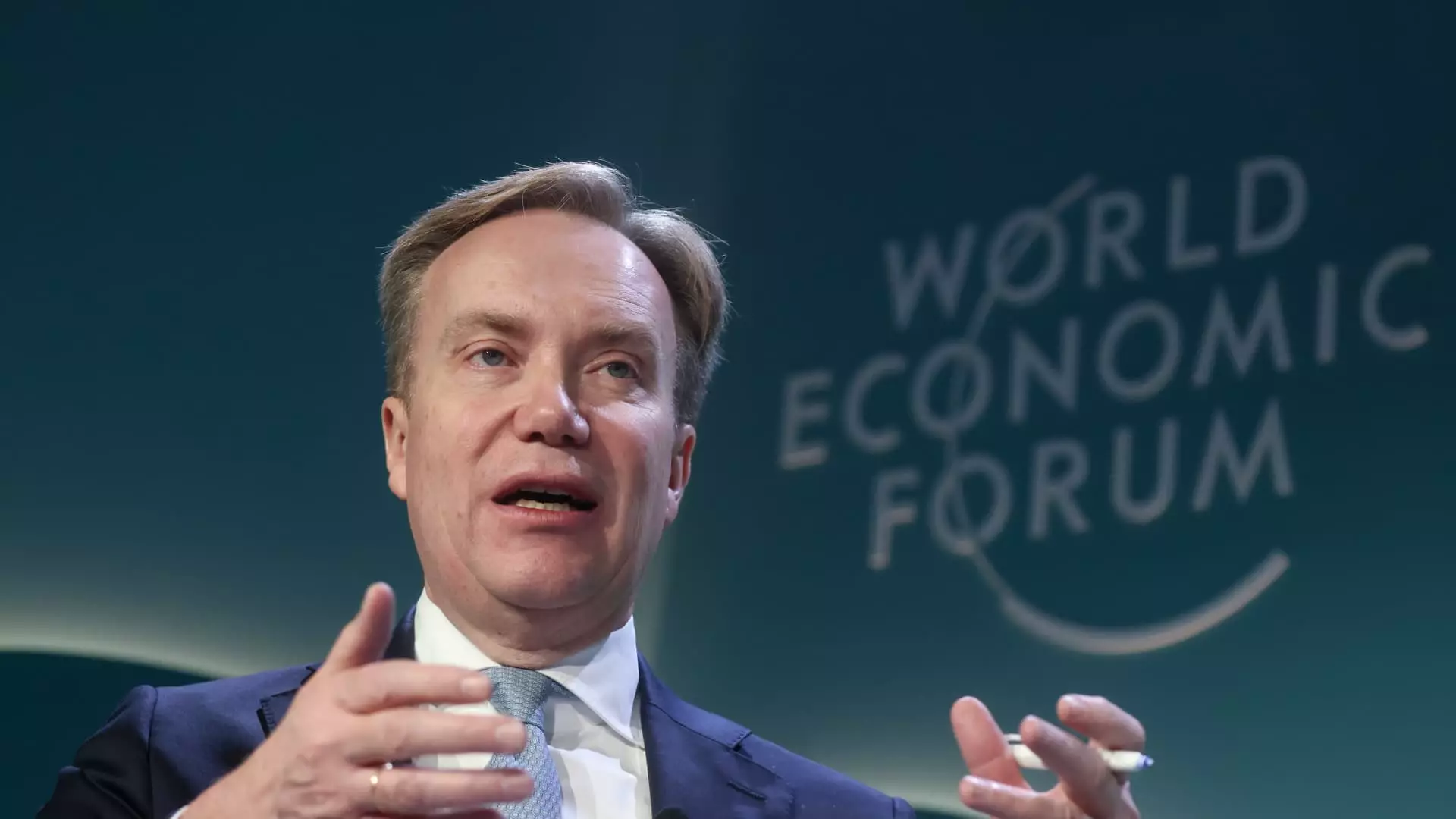The President of the World Economic Forum, Borge Brende, recently gave a grim outlook for the global economy. During a special meeting on global collaboration, growth, and energy for development in Riyadh, Saudi Arabia, Brende highlighted the risk of a decade of low growth if the right economic measures are not implemented. He pointed out that global debt ratios are nearing levels not seen since the 1820s, raising concerns of a “stagflation” risk for advanced economies.
Brende emphasized that the estimated global growth rate for the year is around 3.2%, a significant decline from the trend growth rate of 4% that was maintained for decades. He warned of a potential slowdown reminiscent of the 1970s in some major economies, underscoring the importance of avoiding a full-blown trade war. Despite the evolving landscape of trade, including shifts in global value chains towards near-shoring and friend-shoring, Brende emphasized the necessity of maintaining trade relations to sustain global economic stability.
One of the key concerns highlighted by Brende was the escalating global debt situation. He drew parallels between the current debt levels and those observed during the Napoleonic Wars, cautioning that global debt is approaching 100% of the global GDP. Brende stressed the need for governments to address this concerning debt situation through appropriate fiscal measures to prevent a potential recession. He also mentioned the persistent inflationary pressures and the potential of generative artificial intelligence as an opportunity for the developing world.
Brende’s warning aligns with a recent report from the International Monetary Fund (IMF), which noted that global public debt had increased to 93% of GDP last year, significantly higher than pre-pandemic levels. The IMF projected that global public debt could reach nearly 100% of GDP by the end of the decade. The report also highlighted the substantial debt levels in China and the United States, with loose fiscal policies posing challenges for global financial stability.
In addition to economic challenges, Brende identified geopolitical uncertainties as a significant risk for the global economy. He pointed to recent tensions between Iran and Israel, emphasizing the potential for unpredictability and escalation. Brende warned that any conflict between the two nations could result in a drastic increase in oil prices, reaching as high as $150 overnight, which would have severe repercussions on the global economy.
Brende’s stark outlook for the global economy reflects the complex challenges and risks that lie ahead. With concerns regarding global debt, inflation, trade relations, and geopolitical tensions, policymakers and leaders must carefully navigate these uncertainties to avoid a prolonged period of low growth and economic instability. Addressing these issues will require strategic fiscal measures, international collaboration, and proactive risk management to mitigate the potential impact on the global economy.


Leave a Reply